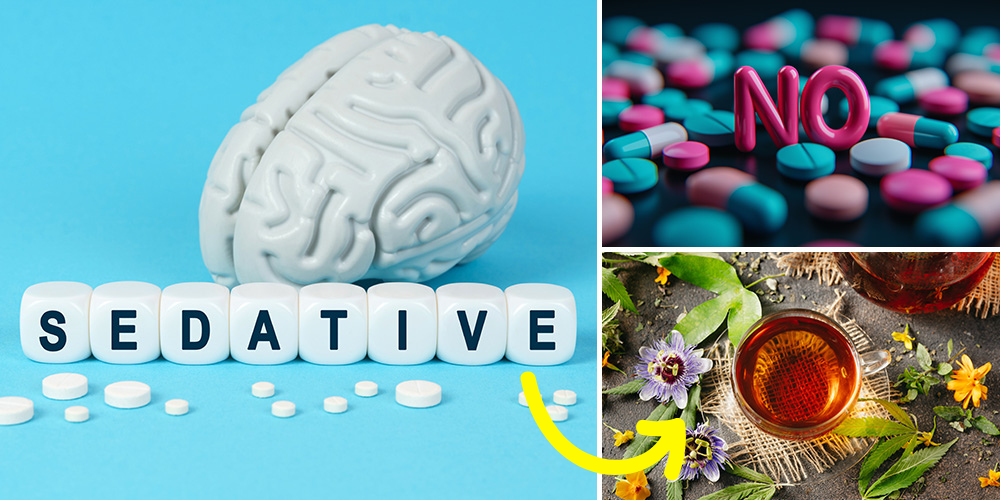
7 Herbal Sedatives For Your Brain
If you are constantly battling sleep problems, anxiety, or tension, natural products like herbal sedatives may be the solution. In this article I will show you 7 proven herbal sedatives for your brain to aid you day-to-day. You’ll notice the difference in less than a week.
When appropriately used over a short period, herbal sedatives have worked well in many people. They are as effective as conventional drugs but with fewer side effects and without withdrawal symptoms.
How Herbal Sedatives Work
Sedatives slow down brain functions. They enhance the production of GABA (gamma-aminobutyric acid), the chemical messenger that blocks signals from the central nervous system. An increased GABA level produces a calming effect, drowsiness, and a reduction of mental activity.
They are often referred to as tranquilizers, but it should be noted that sedatives produce a slightly different effect. They both reduce brain activities, but tranquilizers do not affect consciousness or cause undue drowsiness like sedatives do.
Sedatives are prescription medications used for treating conditions like anxiety, sleep problems and seizures. Some sedatives are also used as general anesthesia. It means that they are not intended for use without a doctor’s prescription.
Herbal sedatives for the brain are mainly utilized for supporting quality sleep and relieving anxiety and stress. They are also excellent at reducing irritability and nervousness and improving overall mood. These are best if you want to improve your sleep and relaxation naturally without relying on drugs.
7 Effective Herbal Sedatives
Many herbal sedatives are well-researched for their efficacy, side effects, and interactions. Given the effectiveness of their bioactive compounds, some are already used as ingredients in conventional medicines.
Some of the soothing herbs with experimental evidence include:
1. Ashwagandha
Indian ginseng, or Ashwagandha (Withania somnifera), is widely used in Ayurvedic medicinal practices for its wide range of therapeutic properties. It is an adaptogenic herb that restores the balance of the body under stress.
Ashwagandha also contains phytochemicals like withanolides that act as steroidal lactones. These give it its sedating, rejuvenating and adaptogenic properties. Ashwagandha extract may counteract stress and chronic fatigue, decrease muscle tension and calm brain activities.
It can also be taken for the purposes of improving sleep quality, it may be helpful for alleviating this as one of the possible root causes of Narcolepsy.
As it also has stimulating ,rejuvenative, and endurance boosting effects, which can help you deal with the symptoms of narcolepsy during the day.
Ashwagandha is often used as a natural way to improve physical performance, endurance, and recovery; this can make it useful for those in athletics or if you are seeking a natural legal performance booster.
2. Lemon Balm
Lemon balm (Melissa officinalis) is a well-known calming herb used to treat various brain disorders. It is a mild sedative beneficial in maintaining blood pressure and proper blood circulation.
A clinical trial of a double-blind, placebo-controlled, balanced cross-over experiment on 18 volunteers suggests that participants’ cognitive performance increased at a 600 mg dose of lemon balm. The study further suggests the potential of lemon balm in mitigating the effects of stress.
In the correct dosage, Lemon Balm also offers antidepressant and anxiolytic (anxiety-relieving) effects. It is a restorative herb that helps to soothe stress, supporting you to align to a calm state while at the same time improving alertness, focus, and mood.
These specific benefits can be particularly helpful if you are dealing with ADHD.
You can make a Lemon Balm tea (the taste is not amazing), an infused oil, a syrup, salve, or tincture. I personally make my own Lemon Balm tincture at home, so I can add it to any other herbal tea I’m drinking, or just take a few drops when needed.
My daughter doesn’t have the time to prepare it at home, but thankfully she found this professional apothecary that provides 100% organic and non-GMO Lemon Balm Tincture. Check it out!
The uplifting nature of Lemon Balm combined with its effectiveness for sleep disorders and improving sleep quality can lead to its usefulness if you are dealing with excessive daytime sleepiness (Narcolepsy).
3. Passionflower
Passionflower (Passiflora incarnata) is a well-studied herb for its sedative activities used in many millennia to promote sleep and relaxation. It is most effective in inducing sleep and releasing muscle tension without affecting the respiratory rate and psychological functioning of conventional sedatives.
An infusion of passionflower leaves or flowers may work against anxiety, insomnia, convulsions, ADHD, and other brain disorders.
4. Valerian
Valeriana officinalis is a potent herbal sedative used for managing neurological disorders, hyperactivity and mood swings. Some sedative pills and sleep aids may contain valerian root for their effectiveness in easing nervous tension.
Often, valerian is used as a single ingredient because of its potency. It must be used cautiously when combined with other botanicals to avoid overdose. However, valerian is not advised to be used with other prescription sedatives and supplements due to possible adverse effects.
5. Reishi
Reishi (Ganoderma lucidum) is another important medicinal mushroom used for managing sleep issues. It contains a high concentration of triterpenes, the compound that induces relaxation of the nervous system.
A study found that reishi extract affects GABA, encouraging deep and restful sleep. It is an excellent complementary herb that works well with other botanicals to help people wind down and relax.
Get your own non-GMO, high-quality Reishi Tincture from here.
6. Chamomile
Chamomile (Matricaria chamomilla) is a popular sleep aid used in children and adults. It contains apigenin, a flavonoid that exhibits a hypnotic activity to induce sedation and treat insomnia.
Chamomile works in various preparations, such as tea or aromatherapy, to release its bioactive constituents. The tea is generally safe and may be used in children experiencing sleeplessness and irritability.
Now, imagine you’d combine the effects of those herbs above. What you’d create is one of nature’s most powerful sedatives. All it takes is mixing them with high-proof alcohol and letting the magic happen over 4–6 weeks as it extracts their goodness. Once you give it a try, you’ll feel the difference in just a few days.
If you can’t put your hand on those easily, you can get them all as an already-made tincture from here. People call it ‘Nature’s Valium’. I used it, and others used it and confirmed it’s better than sleeping pills:
7. Lion’s Mane
Lion’s Mane (Hericium erinaceus) is not necessarily considered a sedative. However, it is worth adding to this list because of its stress-relieving properties, which may significantly contribute to better sleep and relaxation.
The adaptogenic properties of lion’s mane help promote better brain and nerve health. It may also regulate the sleep-wake cycle or circadian rhythms and enable deep REM sleep.
Get your own non-GMO, high-quality Lion’s Mane Tincture from here.
Sedative Golden Milk with Mushroom
Golden milk, also called turmeric milk, is a nighttime sleep aid trusted by many for promoting deep sleep.
Golden milk is basically made of milk and turmeric (Curcuma longa), which also possess excellent sleep-enhancing properties. It may also have coconut oil or ghee and black pepper to improve the bioavailability of the fat-soluble turmeric.
Dairy is often used to prepare golden milk. However, you may also use vegan alternatives like almond milk. Almond milk contains tryptophan, which enhances sleep and supports the effectiveness of golden milk.
So, here is a recipe that uses golden milk as the base recipe with the power boost of mushrooms and ashwagandha. It is excellent for relieving fatigue and stress and achieving a long and quality sleep.
The good thing about herbal sedatives is that they effectively provide physical and mental sedation without causing a general feeling of sluggishness the morning after.
Power-Boosted Golden Milk
 Ingredients
Ingredients
- ½ cup coconut milk
- ¾ cup almond milk
- ½ tbsp coconut oil or ghee
- 1 tsp ground turmeric
- ½ tsp cinnamon powder
- A pinch of black pepper
- ½ tsp Ashwagandha powder
- ½ tsp Reishi extract powder (or 20 Drops of the Reishi Tincture here)
- Sweetener of choice (honey, maple syrup, etc.)
Steps
- Pour coconut milk, almond milk, and coconut oil into a small saucepan.

- Add all the dry ingredients into the liquid mixture: turmeric, cinnamon, black pepper, ashwagandha and Reishi powder.

- Turn the heat into medium-low and whisk the golden milk to mix it well. Do not boil; just heat until warm to the touch.

- Remove from heat and sweeten if desired, then pour into mugs or glass.

To use
Take a glass of the sedative golden milk before bedtime as a natural sleep aid. You may consume it daily but only for a short period. To stay on the safe side and avoid side effects from prolonged use, take the golden milk only when necessary to induce sleep. 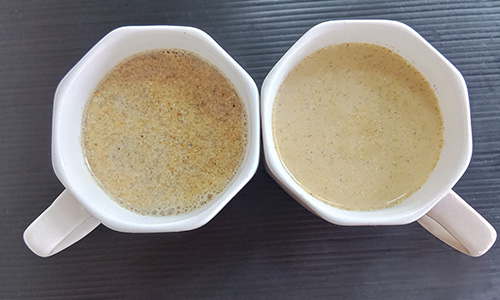
You may also add ½ teaspoon of lion’s mane powder to the golden milk if you want. However, the lion’s mane affects people differently. Some people may sleep well with it, while others may get stimulated. Here’s where you can get Lion’s Mane.
Try lion’s mane to see if it works well for you. If adding it to the golden milk keeps you awake, then you can leave it out the next time.
The Quick Fix
However, if you don’t have the time, the tools, or the place where you can source your ingredients, you can purchase the infusion with the same effects from here. It’s made by one of America’s top herbalists, and all the herbs in it are either wild-harvested or organically grown – which not a lot of supplements can claim!
This remedy might just become one of the most sought-after remedies once a crisis strikes, pharmacies get looted, and hospitals are overcrowded.
Always consult your doctor before trying any supplemental herbs, especially if you have prescribed medications or underlying medical conditions. Some herbs may interact with drugs or diseases.
I found an easy way to naturally calm my mind and body using simple herbal recipes that take just minutes to prepare at home. No harsh chemicals—just gentle, effective herbs that promote relaxation and better sleep.
What really changed everything for me was discovering this incredible recipe book filled with natural remedies. It’s been a game-changer for tackling sleep troubles, anxiety, and even those moments of overwhelming tension.
It’s called The Forgotten Home Apothecary, and here are a few other recipes I’ve tried:
- Nature’s Amoxicillin
- Painkiller in a Jar
- Medicinal Herbal Smoking Blend
- Jello Flu Shots
- Migraine Syrup
- Grandma’s Hot Salve for Back Pain
- Penicillin Soup
- Herbal Sleeping Pills
… those are just a few of the 250 remedies you can find HERE.


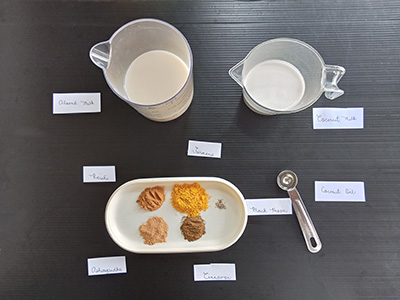 Ingredients
Ingredients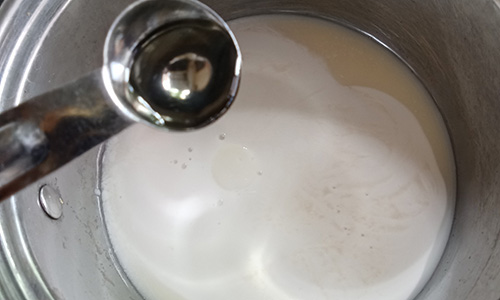
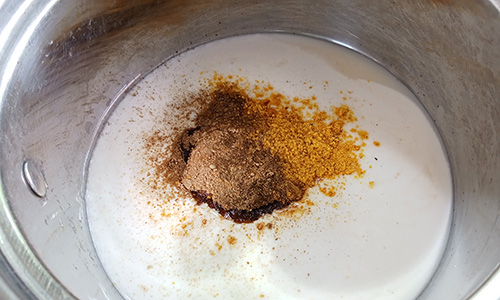
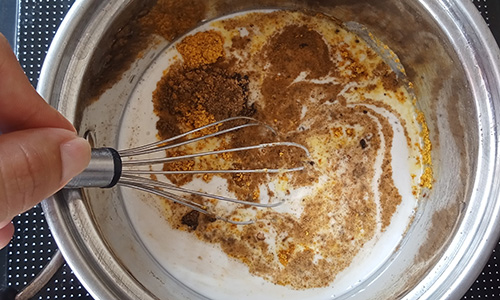
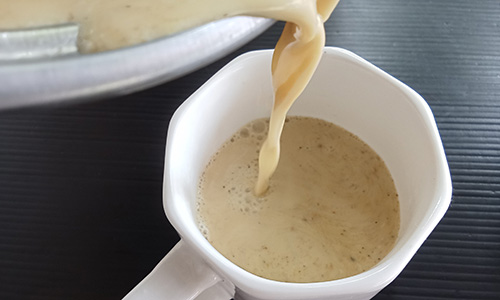
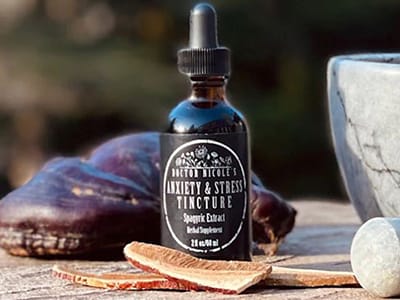
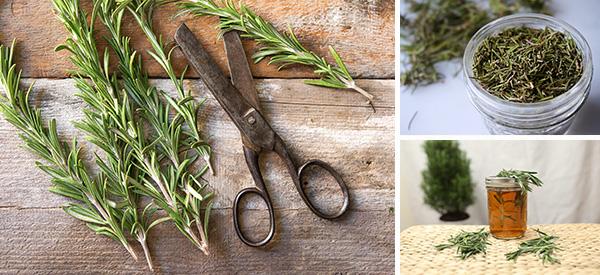

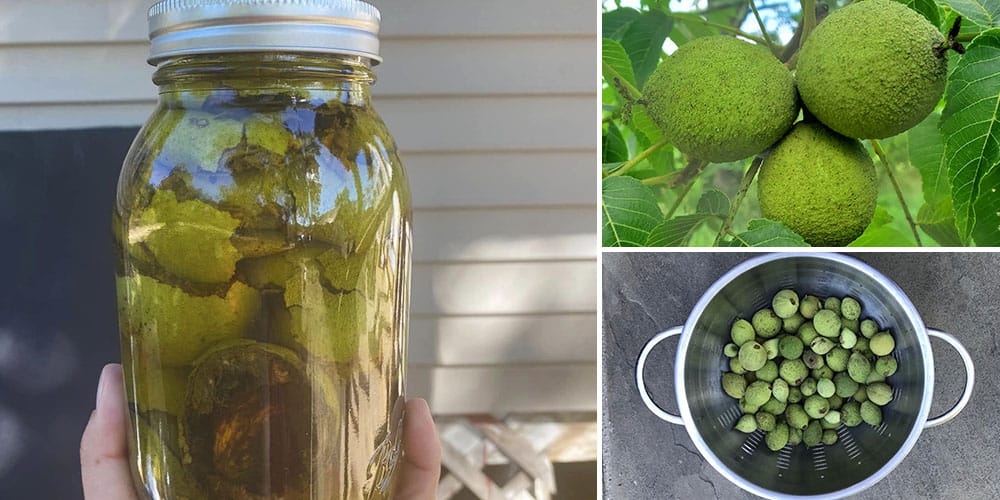
Hi,
I’m interested in this as I do have sleep issues, always did since I was a kid and now even worse being a night shift worker. What are the unsafe sides or side effects mentioned above if taken daily please?
Thanks and regards!
I use California Poppy as a nervine and sleep aid. It has a wonderful effect of calming the nerves and producing drowsiness.
I was wondering if anyone knows any herbs that can help me to improve my prolapse uterous. Thank you